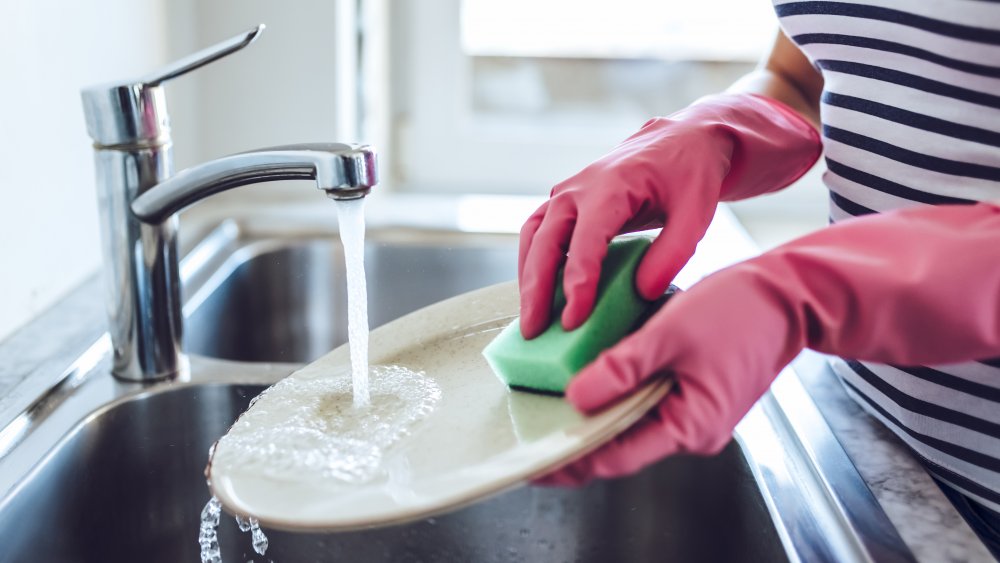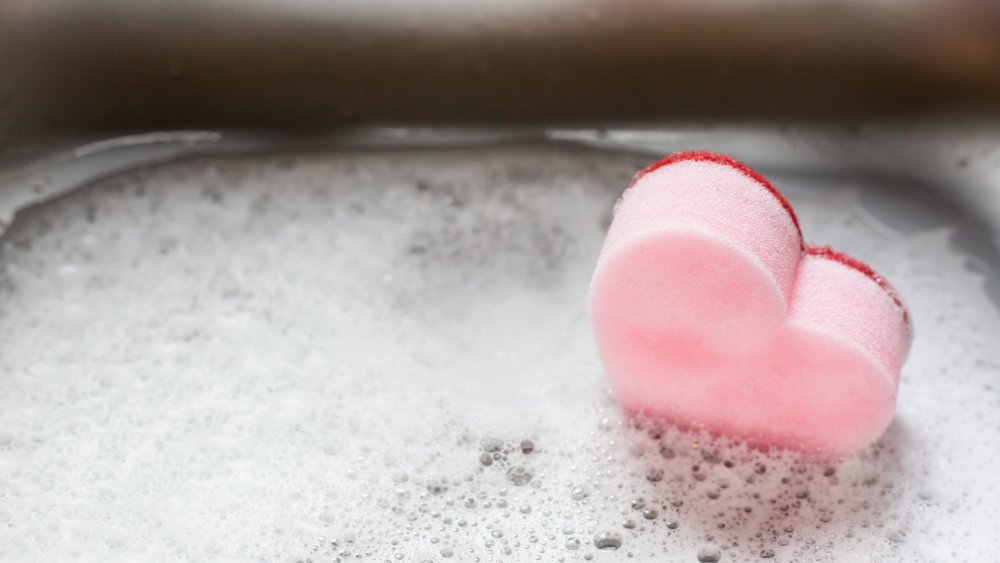The Real Reason You Should Stop Hand-Washing Your Dishes
What to do if you need to wash dishes and there aren't enough to justify running the dishwasher? Why, use a sponge, dishwashing liquid, and a bit of elbow grease, of course. But both environmental experts and scientists are now calling time-out on that plan.
There's a reason why our parents used to pre-wash dishes before they were loaded into the dishwasher: The machine didn't do the job very well. But that's no longer the case, as nearly all modern dishwashers have soil sensors that are able to pick up how dirty a dish might be. And while it might once have been true that dishwashers used up gallons of water in one cycle, that's in the past, too. A kitchen faucet can discharge up to 2.2 gallons a minute – while dishwashers use anywhere from 15 gallons per cycle for older models to 5.5 gallons for an Energy Star-rated model (via Reader's Digest).
"While it may be possible to use less water/energy by washing dishes by hand, it is extremely unlikely," the EPA's Jonah Schein says. "In order to wash the same amount of dishes that can fit in a single load of a full size dishwasher and use less water, you would need to be able to wash eight full place settings and still limit the total amount of time that the faucet was running to less than two minutes" (via Science Alert).
Dish-washing sponges host plenty of bacteria
But there's another reason why you should be thinking about using your dishwasher, which has nothing to do with the environment and everything to do with keeping your and your family healthy. In a study reported by Time, German researchers say they found no less than 362 different kinds of bacteria hanging out in the different crevices found in a household sponge. If that isn't disgusting enough, sponges can actually hold up to 45 billion per square centimeter — or about the same level found in an average stool sample. And given the size of a typical sponge, we're looking at an average bacterial infestation of 5.5 trillion germs on a single sponge. (What's more, you may also want to be leery of the towel you use to dry your dishes.
Furtwangen University professor of microbiology Marckus Egert admits the findings were shocking for him and his team. "It was one to two orders of magnitude more than we initially expected to find," Egert says. "No one had ever seen bacteria sitting inside a sponge. One problem we have with bacteria and microbes is that we cannot see them. And if you don't see them, you don't believe they are there."
We are lucky that the bugs, for the most part, aren't the kinds that make us sick. But we'd like to think that the thought of saving water and dumping germ-filled sponges might be enough to avoid washing dishes by hand.

